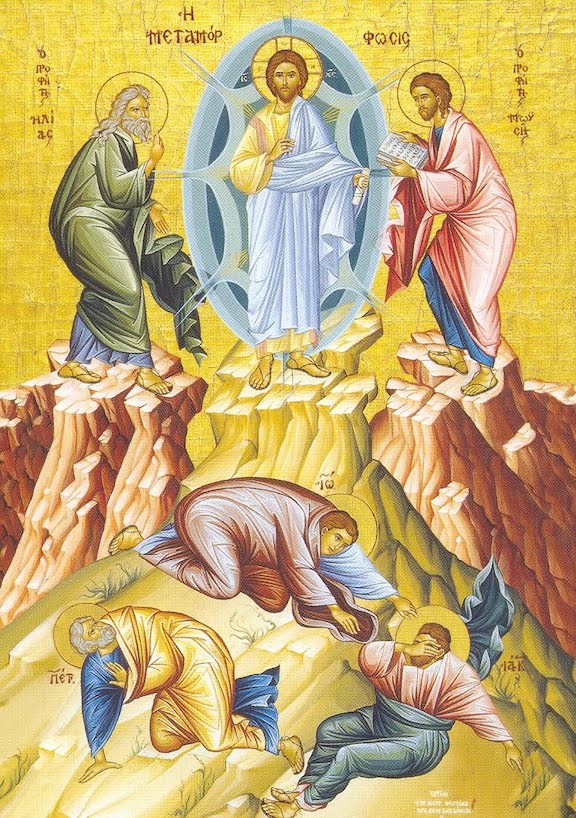Turning Towards Jerusalem
In the story of the Transfiguration Luke tells us not only that Jesus was conversing with Elijah and Moses but what they were talking about. The subject is poignant and sobering. Luke tells us that they are talking about Jesus’ “departure, which he was about to accomplish at Jerusalem.”
There’s a 2008 Japanese movie called, in English, “Departures”. It’s about a young man who returns to his hometown after he loses his position in a large city orchestra as a cellist. Looking for work he comes upon a little ad for a person to help with “departures,” which he assumes means a travel agent. When he applies for the job he discovers that it is for someone to assist with encoffining people who have passed away. The story is beautiful, all about the sorrow, dignity and meaning inherent in the leave-taking surrounding death, and also about reconciliation.
Departures. Death. Jesus’ transfiguration is a precursor to a greater shining. But with it something ends. Jesus sets his face toward Jerusalem, and his earthly ministry begins to wind down. His place is with the prophets who have gone before him; he will never be an earthly king.
We look for triumph in all the wrong places. Being powerful, winning awards, having all sorts of letters behind our names – these are not the apexes of our lives in Christ. They are not by themselves wrong or bad, but they just aren’t as important as other things. These kinds of mountain top experiences, they come and they go. Moses and Elijah don’t visit us there.
Where Moses and Elijah stand and converse with us is in those other moments, the ones where we give up and let go. These sorts of mountain top experiences are where we find ourselves in dialogue with God and learn what God desires of us. Where we turn in a certain direction out of love, stooping to be present, quieting to be available, there we are met by God’s prophets. Where we give up the edifices we have built, no matter how good they are, for the sake of peace, reconciliation, and compassion, there we have something to talk about with those who have gone before.
In the movie “Departures” the main character is looked down upon for his role in handling dead bodies. But he learns that his stillness and his dignity in performing the ritual of encoffinating helps mourners with their grief and reconciliation. He is an agent of love, and that helps him make his own reconciliations.
There is another world, another kingdom, to which we owe our alliance. It is the realm in which we become who we most deeply are in the eyes of Christ and the holy ones. As we approach Lent this year, may we consider how we are being asked to show up in that realm. May we turn our faces toward Jerusalem and begin the journey home.

